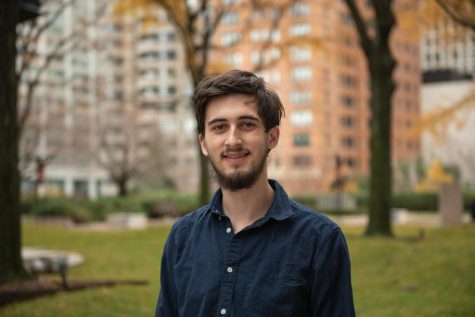District court judge Andrew Hanen from the Southern District of Texas ruled on Sept. 13 against the Deferred Action for Childhood Arrivals (DACA) program for the second time, declaring it illegal. The ruling marked Hanen’s reassertion of DACA’s illegitimacy and states’ rights to challenge the program.
The decision followed regulations established under the Biden administration in Aug. 2022, which have attempted to strengthen the legal standing of DACA in the face of Hanen’s decisions declaring it unlawful.
DACA was enacted under the Obama administration in 2012 to provide undocumented children, specifically those who immigrated to the U.S. before their 16th birthday, with work authorization, drivers’ licenses and a “lawful presence” for a renewable two-year period. Over 580,000 DACA recipients, often referred to as “Dreamers,” retain access to the programs’ benefits and status renewal while the program continues to hang in balance.
Hanen’s first ruling in July 2021 suspended all new DACA applicants, shutting out 400,000 eligible applicants, of which 93,000 still had pending applications. Those who became DACA recipients before that decision are still able to renew their status every two years. The ruling stated that the Obama administration violated the Administrative Procedures Act and thus did not have the legal authority to create the program in 2012.
The most recent ruling settles a lawsuit filed by Texas, alongside eight other states, in January of 2022 challenging the legality of the program.
- In 2012, the Obama Administration enacted DACA
- In 2021, federal district court judge Andrew Hanen suspended DACA applications
- On Sept. 13 Hanen ruled against DACA for the second time
- Fordham has consistently defended Daca in light of these challenges
- DACA recipients at Fordham are eligible for up to three merit based awards
Ava Min, Fordham College at Lincoln Center (FCLC) ’27 and an intern with Amnesty International, the world’s largest grassroots organization working to protect human rights, said that working with the organization has given them a lot of “food for thought” on the human rights of those crossing the Texas-Mexico border. They believe that the recent DACA ruling illustrates a broader need to address racial justice and the rights of immigrants of color.
“I think it’s a malicious, poorly thought-out decision that’s been made with a lot of political pretext,” Min said.
Regarding the opportunities available to those eligible for the DACA program, Saanvi Upadhyay, FCLC ’26, questions what pathways for citizenship, employment and higher education eligible minors will now have when migrating with their families to the United States when there is no option to stay in their country of origin.
“I don’t think it’s fair to punish children, especially if the decisions were made by their parents because you don’t really have the financial stability or just the opportunity to go against their wishes,” Upadhyay said. “Especially if it’s something big like leaving where you grew up.”
This year, Hanen’s ruling determined that the Biden administration’s efforts to reaffirm the program was not materially different from the Obama administration’s executive order establishing the program, which critics claim wrongfully bypassed congressional approval.
DACA recipients have seen the status of the program threatened before. In 2020, the U.S. Supreme Court ruled that there was a lack of evidence supporting DACA’s legitimacy in response to the Trump administration’s efforts — following the election of former U.S. President Donald Trump in 2016 — to terminate the program as a part of his agenda.
Following Trump’s efforts in 2017 and 2018 to dissolve DACA, Fordham referred to the decision as “extremely troubling” as the university believed it jeopardized the affected students’ futures.
“Fordham University has been steadfast in support for the DACA program in our advocacy efforts in both Washington D.C. and Albany,” a statement on the Fordham website explained in 2017. “We will continue to actively and aggressively engage federal policymakers in an effort to either reverse the order or secure a legislative remedy.”
“I think it’s a malicious, poorly thought-out decision that’s been made with a lot of political pretext.” Ava Min FCLC 27
Mila Grgas, FCLC ’24 and president of Feminists Alliance at Lincoln Center — a club which emphasizes intersectional feminism — noted that young women and children face significant safety risks immigrating to the United States and the policies and treatment they face is unjustifiable.
The number of migrants traveling north to the U.S. from Venezuela, Haiti and other countries has continued to increase. They cross the Darien Gap jungle, deemed one of the world’s most dangerous migration routes, where thousands are left behind — and borders of several Central American countries thereafter, such as Guatemala and Mexico, which have been increasingly militarized in the last few years.
Hanen’s most recent ruling is likely to lead to another Supreme Court hearing pertaining to DACA after an expected series of appeals. The 2020 hearing established the Trump administration’s failure to follow procedure in terminating DACA and passively allowed the program’s status of renewal. An anticipated second hearing would include in its purview the DACA program’s legality, thus jeopardizing the continuation of the policy for current recipients and hopeful applicants alike.
“I don’t think it’s fair to punish children, especially if the decisions were made by their parents because you don’t really have the financial stability or just the opportunity to go against their wishes.” Saanvi Upadhyay FCLC 26
At Fordham, admissions decisions are not impacted by DACA status — in fact, DACA recipients are eligible for three major merit scholarship awards. While need-based financial aid is dependent on being a U.S. citizen, these merit scholarships and resources, such as the New York State Tuition Assistance Program, aim to foster an inclusive community of diverse Fordham students — regardless of immigration status.
Sadhana Muthukumar, FCLC ’25, said that DACA has helped children avoid deportation by investing in recipients’ opportunities to earn a formal education and college degree. She added that she believes attempts to strike down the DACA program are hypocritical.
As an Indian immigrant herself, Muthukumar noted she feels that the U.S. government deems Indian migrants as having high earning potential, making it easier for them to gain legal status and documentation. She shared that she questions whether other migrants are attributed with as much value and worth.
Muthukumar highlighted that DACA recipients shouldn’t have to further ‘prove’ themselves because they have worked just as hard and harder than U.S. citizens in order to gain protected status.
Over the course of this string of anti-DACA rulings, the university has maintained a webpage dedicated to updates on the United States’ DACA policy. Linking statements of support for students affected by DACA decisions and legal resources, Fordham has cited the alignment of its Jesuit values and DACA benefits as the reason behind the university’s support for the program’s unfettered survival.
“For our entire 175-year history, we have kept faith with the vision of Archbishop John Hughes who founded Fordham to serve immigrants and their sons, daughters, grandsons, and granddaughters,” the website said. “ We stand with you and will do all we can to be effective advocates for you.”
Muthukumar highlighted that DACA recipients shouldn’t have to further ‘prove’ themselves because they have worked just as hard and harder than U.S. citizens in order to gain protected status.
Allison Anwalimhobor, FCLC ’25, grew up as a U.S. citizen living in Nigeria, from which her family immigrated. She shared that after experiencing the emotion of the government’s ban of Nigerian immigrants to the U.S. in 2020, hearing about the limitations now placed on the DACA program brought up similar feelings.
“America has a strong distrust and distaste for immigrants, especially those from the Third World, or developing nations,” Anwalimhobor said. “And in an effort to keep us out and to maintain some sense of purity, xenophobic and racist Immigration laws will continue to pass.”
Grgas said that she believes the political environment spanning across the Biden, Trump, and Obama administration’s and prior, regarding the status of individuals who have migrated is hostile.
“I feel like you can definitely see that in when you’re comparing it to the Ukraine crisis and the way that both people have been received and to welcoming arms when it’s completely different in the US for especially like South American and Central American people,” Grgas said.
Deportations reached an all-time high in 2013 under the Obama administration despite policies like DACA.
Min said that the DACA program allows for the development of young “Dreamers,” the term used to refer to DACA recipients. She believes that while the legal risk to the program may not directly affect any single person directly, there remains a reverberating effect across communities.
“To deny education to innovators of this generation is to deny this country the opportunity to evolve into the melting pot of brilliance it was meant to me,” Min said.
Insiya Gandhi and Alexa Villatoro contributed reporting to this story.



ROLAND NICHOLSON, JR.ESQ • Oct 1, 2023 at 9:57 am
I do not know U.S. District Court Judge Robert Hansen, but I understand we both share a love of hunting in the Texas Hill Country. I have law school classmates who have appeared before him. I pray that we both fill our larders with game this upcoming fall. I also hope that Judge Hansen does not suffer an illness or accident as he and I spend hours in the beauty that is West Texas. If he suffers such a misfortune, he may find himself in a hospital emergency room with a doctor or nurse who is a DACA recipient. If that health care professional is not there the outcome may not be as good. This point was recently echoed by Luis Seija, MD, a resident physician at Mount Sinai’s Sinai Hospital in New York, who appeared in “COVID-19 & Latinx Voices in the Field,” a part of the AMA’s Prioritizing Equity video series.
“I just want to say this is a reminder that DACA recipients are not just physicians, they’re pharmacists, they’re nurses, they’re all the above, everything that we need during a pandemic and beyond,” Dr. Seija said. “They’re some of the hardest working and smartest people I know.”
The Litigation Center of the American Medical Association and State Medical Societies joined the Association of American Medical Colleges and 31 other organizations in filing an amicus brief urging the court to stop the government from ending DACA.
The brief notes that, as of the 2019 medical school application cycle, 65 institutions had admissions policies that included DACA recipients and that there were about 200 medical students, residents and physicians who relied on the immigration policy to work and be eligible to practice medicine in the U.S.
Dalia Larios, MD
The Supreme Court ruling means that DACA recipients such as Dalia Larios, MD, can continue to train and practice in the U.S.
“Our country relies on the skills and experiences of the hundreds of active physicians, plus medical students and residents who depend on DACA for their eligibility to study, practice medicine and fill crucial gaps in patient care,” Dr. Bailey said. “During their careers, these highly skilled clinicians will care for and improve the lives of millions of Americans while helping to fulfill our goal of a diverse health care workforce that reflects the demographics of the patients we serve.”
If physician trainees and physicians who are DACA recipients retain their work eligibility, each will care for an average of between 1,533 and 4,600 patients a year, according to the brief. Together they will touch the lives of 1.7 to 5.1 million U.S. 30,000 U.S. Healthcare professionals are DACA recipients.